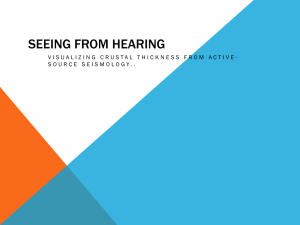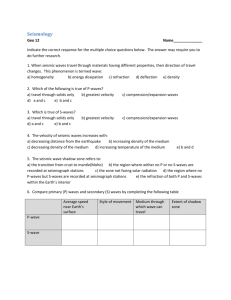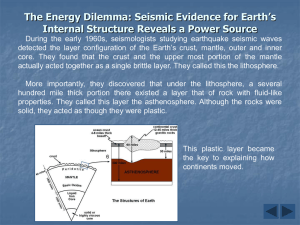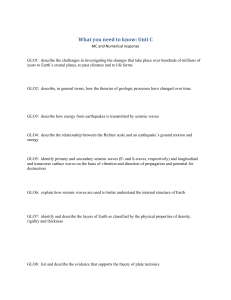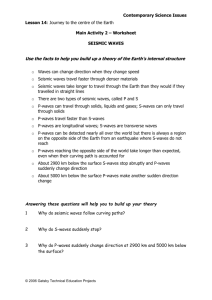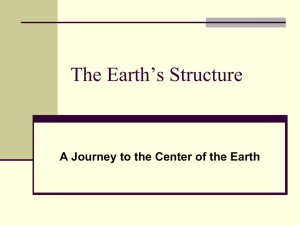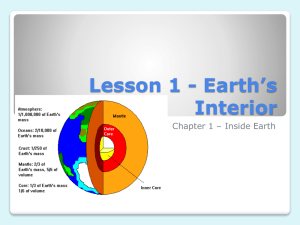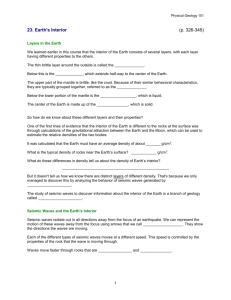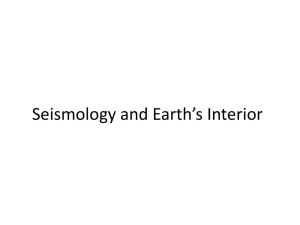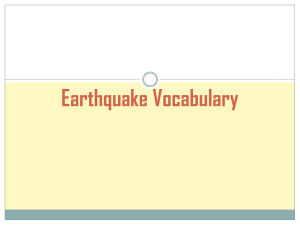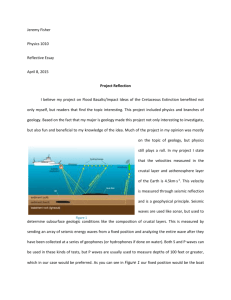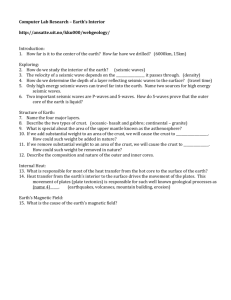Earth`s Interior Powerpoint
advertisement
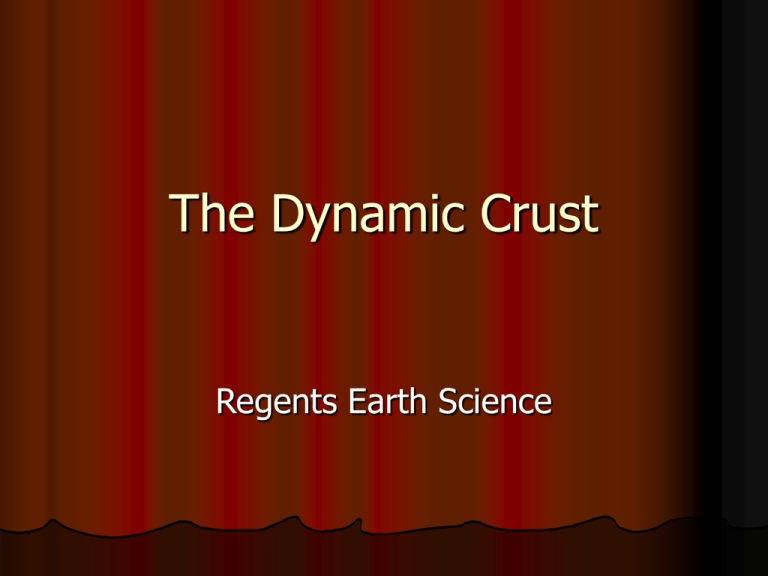
The Dynamic Crust Regents Earth Science Seismic Waves and Earth’s Structure How can we tell that the outer core is liquid and the inner core is solid? Seismic Waves and Earth’s Structure Velocity of Seismic Waves P-waves travel fastest (~2X faster than S-waves) S-waves second fastest Increases in denser material The waves are refracted (bent) as they pass from a material of one density to a material of a higher or lower density. Seismic Waves and Earth’s Structure P-waves Travel through solids, liquids and gases S-waves Travel only through solids Seismic Waves and Earth’s Structure Scientists infer the properties of Earth's interior through the analysis of seismic wave data. By studying thousands of seismograms scientists have discovered that seismic waves refract, reflect, change velocity, and become absorbed by various parts of Earth's interior. The following diagram shows the results of these thousands of studies. P and S Waves Seismic Waves and Earth’s Structure P and S Waves Shadow Zone The Shadow Zone is created by the refraction of P-waves and the inability of S-waves to travel through a liquid. Inferred Properties of Earth’s Interior Inferred Properties of Earth’s Interior Earth’s Layers - Detail Crust Lithosphere Moho Asthenosphere Mantle Asthenosphere (plastic) Stiffer Mantle Outer Core Inner Core Earth’s Crust Continental Crust Beneath continents Thicker Oceanic Crust Beneath Oceans Thinner Thickest where highest (beneath mountains) Granitic Rocks Less Dense Basaltic Rocks Denser MOHO Mohorovic Discontinuity Interface between lithosphere and asthenosphere Below Moho rocks become denser due to increased pressure at depth and solid phase Asthenosphere Plastic portion of the upper mantle Rocks are partially molten (plastic) Detected due to decrease in velocity of seismic waves through this zone Widely accepted theory that magma and lava originate in the asthenosphere Inferred Properties of Earth’s Interior Inferred Properties of Earth’s Interior
